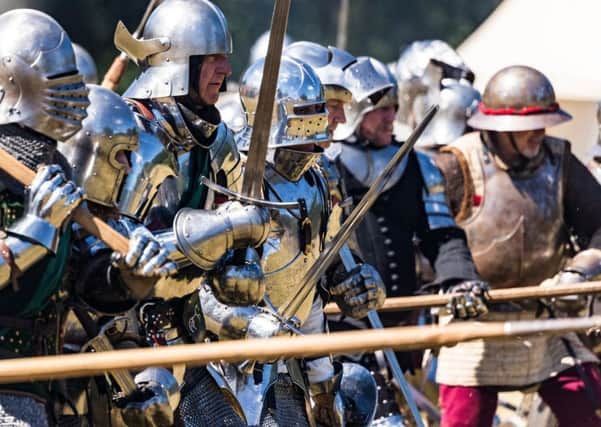Loxwood Joust: Fascinating facts about Medieval life


As part of the countdown to this year’s Loxwood Joust, being held at Loxwood Meadow on August 5&6 and 12&13, organisers have compiled some fascinating (and horrifying!) facts about Medieval life.
Here’s some things you might not know....
• The man who carried the King’s hunting birds to the hunt carried them on a wooden frame called a ‘Codge’. These men were usually elderly and trustworthy servants, and were called ‘Codgers’. This is where we get the term, ‘Old Codgers’.
Advertisement
Hide AdAdvertisement
Hide Ad• The King of England employed a special servant whose job it was to attend to his Majesty on the toilet, and to ‘assist the King in the use of his toilet paper’. This servant was called the ‘Groom of the Stool’.
• Until the 16th century, forks were almost unknown in England. Until then, people ate only with knives and spoons, and occasionally with their fingers.
• Salt was very expensive in medieval times, and pepper and sugar were more expensive by weight than gold.
• A medieval Lady, if she was very wealthy, might own as many as six metal needles. In the 14th century, metal needles were more expensive than diamonds.
Advertisement
Hide AdAdvertisement
Hide Ad• Most musicians in medieval England were seen as rogues and thieves, and were only allowed to stay inside a house whilst playing. After they had performed, most were required to sleep in the stables or in a barn.
• In the early 1500s, Henry VIII began the Secret Service. Men were sent to the great courts of Europe to spy on other rulers. One of the most common occupations for these spies was as a painter; they would paint the portraits of European nobles and often include secret messages hidden in the objects of the painting.
• After a great battle, it was often the job of the local women to help count the bodies of the men killed. As dead bodies are so heavy, they commonly chopped off the hand of the corpse and placed it in a large canvas bag which was later emptied for counting. The bag was commonly called a ‘handbag’, leading to the name we have for women’s bags today.
• Toilets in the Middle Ages often just emptied into a chamber or a pit close to the castle. When this pit was full, a man was employed to dig it out and carry the waste away in a wheelbarrow. This was not one of the more popular jobs of the time.
Advertisement
Hide AdAdvertisement
Hide Ad• Books were rare and expensive in the middle ages as each one had to be copied by hand. This was often done by Monks with only candlelight to see by. The work was long and boring, and sometimes the Monks would make a mistake. One of the most famous of these was made when copying out what is now called the ‘Infernal Bible’, where one of the Ten Commandments was copied down as ‘THOU SHALT KILL’.
For full details about the event and to buy tickets visit www.loxwoodjoust.co.uk